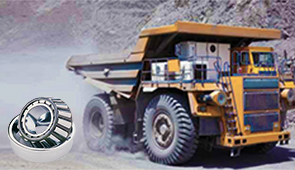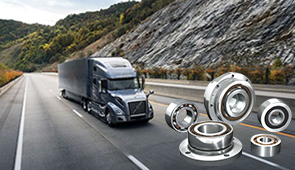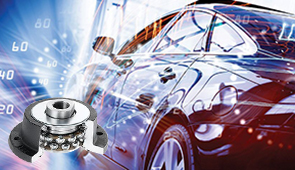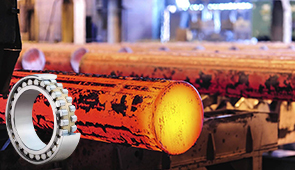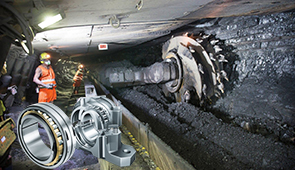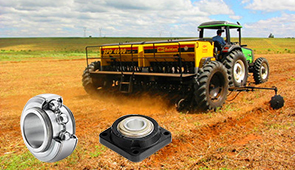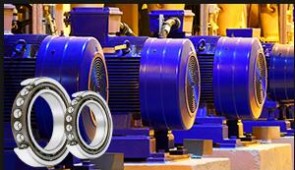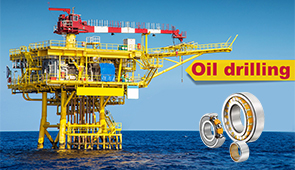What kind of steel are ball bearings made of?
Ball bearings are made of steel. The most common type is stainless steel, but there are low-carbon and high-carbon varieties.
Stainless steel is a combination of iron, nickel and chromium. It is often hardened by quenching in oil or brine after it has been forged or rolled into its final form.
Low-carbon steel is softer than other types of steels, but it has a higher strength-to-weight ratio than other types of steel. High-carbon steels are harder and more brittle than other types of steel.
Stainless steel
Stainless steel is a steel alloy with a minimum of 10.5% chromium content by mass. Stainless steels are more corrosion-resistant than plain steel because they contain at least 10.5% chromium, which converts to chromium oxide (CrO) when exposed to oxygen. Chromium oxide forms a thin, passive, surface layer on the metal that resists oxidation and prevents further reaction with oxygen. Stainless steel’s durability is due to its resistance to corrosion and staining, low maintenance and easy cleaning.
Stainless steel is made by adding chromium to iron and nickel base alloys (steel). Adding chromium to an alloy increases its resistance to corrosion and improves its physical properties such as tensile strength, hardness and malleability.
The chromium-rich layer formed on the surface of stainless steels is resistant to corrosive substances such as salt water and chlorinated solvents as well as many corrosive industrial chemicals such as sulfuric acid or acidic chloride solutions.
Carbon steel
Carbon steel is used to make ball bearings because it has a high level of hardness and wear resistance.
Carbon steel is made from iron and carbon, with traces of other elements. The highest quality carbon steels are hardened by melting them in a furnace, then rapidly cooling them in water or oil. This process makes the steel stronger and more dense, but also increases its brittleness. A special grade of steel known as tool steel can be used to manufacture ball bearings. Tool steel contains carbon along with tungsten, molybdenum, vanadium, chromium, manganese and other elements that enhance its strength and durability.
One of the most common grades of tool iron is 1045. This type of iron has a carbon content of 0.45% to 0.50%, which makes it easy to machine into shapes that resemble balls or discs (donuts). It can also be formed into cylindrical parts such as shafts or rods for use in machinery applications where there are high loads placed on rotating parts.
Chrome alloy steel
Chrome alloy steel made of ball bearings is one of the most widely used bearing materials. It has excellent wear resistance, corrosion resistance and high temperature properties.
Chrome alloy steel made of ball bearings are widely used in automobile, aviation, agricultural machinery, construction machinery and other fields.
Chrome alloy steel made of ball bearings are also called chrome steel bearings, chrome plated bearings and stainless steel bearings.
The main feature of Chrome alloy steel made of ball bearings is that it has high hardness and wear resistance. It can be used to bear heavy loads in a wide range of -50 ℃ ~ +350 ℃ temperature environments. The surface hardness is HRC54-65. The minimum allowable speed is 20 m / s, which can withstand high temperatures and high speed operation.
Chromium steel made of ball bearings are mainly divided into two categories: ordinary chrome steel and chromium-molybdenum steel . The former has better corrosion resistance than the latter at low temperatures; however, the strength of the latter is better than ordinary chromium steel at high temperatures; chromium-molybdenum steel is difficult to produce and its production rate is very low compared with ordinary chrome steels.
High-carbon steel
High-carbon steel ball bearings are a type of heavy duty bearing made from high carbon steel. These bearings are some of the most popular and widely used in the world. High-carbon steel ball bearings are available in both sealed and open designs, with capacities ranging from 2 to over 1000 kilograms.
High-carbon steel is a special type of steel that is created through a process where the carbon content is increased to 1.5% or more. This process results in a very strong material with a higher tensile strength than low carbon steel. High-carbon steel has many applications, including automotive parts, tools, industrial equipment and construction materials (such as rebar).
High-carbon steel ball bearings can be used in any application where there is an extreme amount of stress on the part being used or if there is going to be continuous movement involved for long periods of time without any breaks or pauses for rest or relaxation (which we like to call “work”).
High-carbon ball bearings do not require lubrication because they have such high levels of hardness that they will not wear out quickly enough for it to matter much anyway so there’s no need for lubrication when using high carbon steel ball bearings.
Hardened steel
Hardened steel ball bearings are used in many different industrial applications. They can be made from hardened steel, which is one of the toughest materials available.
Hardened steel ball bearings are made with a hardened SAE 8620 steel and have a hardness of HRC 62-63. These bearings are also made with a special surface treatment process that reduces friction and increases durability.
Hardened steel ball bearings can be used in many different applications because they provide great wear resistance and long life. The main purpose of these bearings is to reduce friction and wear, but they also help to increase efficiency and output by reducing energy costs.
These bearings are used in many different industries including agriculture, construction, mining and transportation industries among others. This type of bearing is perfect for use on heavy machinery such as bulldozers, tractors or other types of vehicles that require large amounts of power to operate efficiently.
Ball bearings are made of different steels, depending on their application.
Steel is an alloy of iron and carbon. The carbon content determines the type of steel. Carbon steels are used for general structural and mechanical engineering purposes. They are strong, ductile and malleable, but not very hard.
The most common types of steel used to make ball bearings are:
Chrome-Molybdenum (C-M) steel (a blend of chrome and molybdenum). This is the most common material used to make precision ball bearings because it combines high strength with good corrosion resistance. It is made by adding up to 3% chromium and up to 0.15% molybdenum to plain carbon or low-alloy steels. This gives a strengthening effect and helps to prevent corrosion.
High Carbon Chrome Steel (HCS) is generally stronger than C-M steel, but less resistant to corrosion by salt water or other contaminants that may be present in a machine tool application (such as cutting fluids). It also has better fatigue properties than C-M steel, which means that it will last longer under repeated loads (e.g., in an engine crankshaft).
All the steels are used in ball bearings because of their high resistance to wear and their excellent hardness.
UCTH213-40J-300 with Setscrew(inch)
CNSORDERNO: Normal-duty(2)
TOGN: UCTH213-40J-300
SDI: B-R1/8
SD: 2 1/2
UCTH212-39J-300 with Setscrew(inch)
CNSORDERNO: Normal-duty(2)
TOGN: UCTH212-39J-300
SDI: B-R1/8
SD: 2 7/16
UCTH212-38J-300 with Setscrew(inch)
CNSORDERNO: Normal-duty(2)
TOGN: UCTH212-38J-300
SDI: B-R1/8
SD: 2 3/8
UCTH212-36J-300 with Setscrew(inch)
CNSORDERNO: Normal-duty(2)
TOGN: UCTH212-36J-300
SDI: B-R1/8
SD: 2 1/4
UCTH211-35J-300 with Setscrew(inch)
CNSORDERNO: Normal-duty(2)
TOGN: UCTH211-35J-300
SDI: B-R1/8
SD: 2 3/16
UCTH211-34J-300 with Setscrew(inch)
CNSORDERNO: Normal-duty(2)
TOGN: UCTH211-34J-300
SDI: B-R1/8
SD: 2 1/8









